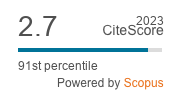El gobierno corporativo en los índices de sostenibilidad: un estudio de caso español
DOI:
https://doi.org/10.26441/RC19.2-2020-A1Palabras clave:
sostenibilidad corporativa, gobierno corporativo, índices de sostenibilidad, consejos de administración, responsabilidad social corporativa, ética de los negociosResumen
En los últimos años, el gobierno corporativo y la responsabilidad social de las empresas se han acercado en la investigación académica, y especialmente en los índices de sostenibilidad. De hecho, los índices más importantes tratan la cuestión del gobierno corporativo junto con otros criterios ambientales y sociales. El propósito de este estudio es descubrir si todas las variables incluidas en la dimensión gobierno corporativo de los índices mencionados son igualmente relevantes y materiales tanto para la responsabilidad social de las empresas como para el gobierno corporativo. Para llevar a cabo el estudio, se ha tomado una muestra de académicos y profesionales del ámbito universitario y empresarial español. Defendemos la hipótesis plausible de que no todos los elementos incluidos en la dimensión gobierno corporativo de los índices de sostenibilidad son homogéneos e intercambiables y, por lo tanto, igualmente relevantes. Como consecuencia, las mediciones que proporcionan estos índices pueden no ser verdaderamente representativas.
Descargas
Referencias
Adam, A. M. y Shavit, T. (2008) How can a ratings-based method for assessing corporate social responsibility (CSR) provide an incentive to firms excluded from socially responsible investment indexes to invest in CSR? Journal of Business Ethics, 82(4), 899-905. https://doi.org/10.1007/s10551-007-9600-4 DOI: https://doi.org/10.1007/s10551-007-9600-4
Aguilera, R. V., Williams, C. A., Conley, J. M., & Rupp, D. E. (2006). Corporate governance and social responsibility: A comparative analysis of the UK and the US. Corporate Governance: an international review, 14(3), 147-158. https://doi.org/10.1111/j.1467-8683.2006.00495.x DOI: https://doi.org/10.1111/j.1467-8683.2006.00495.x
Andreu, A. (2017). Revisión crítica de la dimensión “Gobierno Corporativo” en los Índices de Sostenibilidad: análisis del ejercicio de la responsabilidad del Consejo de Administración en materia de RSC en las compañías del Ibex 35 español. Tesis doctoral. Madrid. Universidad Pontificia Comillas.
Andreu, A., Fernández, J. L., & Fernández, J. (2018). Revisión crítica de la dimensión Gobierno Corporativo en los cuestionarios de los Índices de Sostenibilidad. Revista de Comunicación, 17(2). https://doi.org/10.26441/rc17.2-2018-a1 DOI: https://doi.org/10.26441/RC17.2-2018-A1
Avetisyan, E., & Hockerts, K. (2017). The consolidation of the ESG rating industry as an enactment of institutional retrogression. Business Strategy and the Environment, 26(3), 316-330. https://doi.org/10.1002/bse.1919 DOI: https://doi.org/10.1002/bse.1919
Baas, R. B., Georgakopoulos, G., Vasileiou, K. Z., & Sotiropoulos, I. (2016). An Investigation of Corporate Sustainability Value to Investors Before and After the Financial Crisis. International Journal of Economics and Finance, 8(6), 37. http://dx.doi.org/10.5539/ijef.v8n6p37 DOI: https://doi.org/10.5539/ijef.v8n6p37
Barreiro-Gen, M., Lozano, R., & Zafar, A. (2020). Changes in Sustainability Priorities in Organisations due to the COVID-19 Outbreak: Averting Environmental Rebound Effects on Society. Sustainability, 12(12), 5031. https://doi.org/10.3390/su12125031 DOI: https://doi.org/10.3390/su12125031
Beloe, S., Scherer, J., & Knoepfel, I. (2004). Values for money: reviewing the quality of SRI research. SustainAbility. http://sustainability.com/our-work/reports/values-for-money/
Beltratti, A. (2005). The complementarity between corporate governance and corporate social responsibility. The Geneva Papers on Risk and Insurance-Issues and Practice, 30(3), 373-386. https://doi.org/10.1057/palgrave.gpp.2510035 DOI: https://doi.org/10.1057/palgrave.gpp.2510035
Berger, P. L., & Luckmann, T. (1991). The social construction of reality: A treatise in the sociology of knowledge. England. Penguin Books.
Bird, F. (2001). Good governance: A philosophical discussion of the responsibilities and practices of organizational governors. Canadian Journal of Administrative Sciences/Revue Canadienne des Sciences de l'Administration, 18(4), 298-312. https://doi.org/10.1111/j.1936-4490.2001.tb00265.x DOI: https://doi.org/10.1111/j.1936-4490.2001.tb00265.x
BlackRock (2016). “Exploring ESG: A Practitioner’s Perspective”. September 2016. Black Rock. https://www.blackrock.com/investing/literature/whitepaper/viewpoint-exploring-esg-a-practitioners-perspective-june-2016.pdf
Blair, M. M. (1996). Ownership and control: Rethinking corporate governance for the twenty-first century. Long Range Planning, 3 (29), 432. https://doi.org/10.1016/0024-6301(96)90031-X DOI: https://doi.org/10.1016/0024-6301(96)90031-X
Boghossian, P. (2007). Fear of knowledge: Against relativism and constructivism. Oxford. Oxford University Press.
Chan, M. C., Watson, J., & Woodliff, D. (2014). Corporate governance quality and CSR disclosures. Journal of Business Ethics, 125(1), 59-73. https://doi.org/10.1007/s10551-013-1887-8 DOI: https://doi.org/10.1007/s10551-013-1887-8
Chatterji, A. K., Levine, D. I., & Toffel, M. W. (2009). How well do social ratings actually measure corporate social responsibility? Journal of Economics & Management Strategy, 18(1), 125-169. https://doi.org/10.1111/j.1530-9134.2009.00210.x DOI: https://doi.org/10.1111/j.1530-9134.2009.00210.x
CNMV (2015). Código de buen gobierno de las sociedades cotizadas. Comision Nacional del Mercado de Valores (CNMV). https://www.cnmv.es/docportal/publicaciones/codigogov/codigo_buen_gobierno.pdf
Dahlsrud, A. (2008). How corporate social responsibility is defined: an analysis of 37 definitions. Corporate social responsibility and environmental management, 15(1), 1-13. https://doi.org/10.1002/csr.132 DOI: https://doi.org/10.1002/csr.132
De la Cuesta, González, M., Pardo, E., & Paredes, J. D. (2015). Identificación de indicadores relevantes del desempeño RSE mediante la utilización de técnicas multicriterio. Innovar, 25(55), 75–88. https://doi.org/10.15446/innovar.v25n55.47197 DOI: https://doi.org/10.15446/innovar.v25n55.47197
Delmas, M., & Blass, V. D. (2010). Measuring corporate environmental performance: the trade‐offs of sustainability ratings. Business Strategy and the Environment, 19(4), 245-260. https://doi.org/10.1002/bse.676 DOI: https://doi.org/10.1002/bse.676
Donker, H., & Zahir, S. (2008). Towards an impartial and effective corporate governance rating system. Corporate Governance: The international journal of business in society, 8(1), 83-93. https://doi.org/10.1108/14720700810853428 DOI: https://doi.org/10.1108/14720700810853428
Doyle, T. (2018) Ratings that don´t rate. The subjective world of ESG ratings agencies. American Council for Capital Formation. http://accf.org/2018/07/19/ratings-that-dont-rate-the-subjective-world-of-esg-ratings-agencies/
Eccles, R. G., Krzus, M. P., Rogers, J., & Serafeim, G. (2012). The need for sector‐specific materiality and sustainability reporting standards. Journal of Applied Corporate Finance, 24(2), 65-71. https://doi.org/10.1111/j.1745-6622.2012.00380.x DOI: https://doi.org/10.1111/j.1745-6622.2012.00380.x
Eccles, R. G., Ioannou, I., & Serafeim, G. (2014). The impact of corporate sustainability on organizational processes and performance. Management Science, 60(11), 2835-2857. https://doi.org/10.3386/w17950 DOI: https://doi.org/10.1287/mnsc.2014.1984
Eccles, R. G., & Youmans, T. (2016). Materiality in corporate governance: The statement of significant audiences and materiality. Journal of Applied Corporate Finance, 28(2), 39-46. https://doi.org/10.1111/jacf.12173 DOI: https://doi.org/10.2139/ssrn.2654199
Elkington, J. (2006), ‘‘Governance for sustainability’’, Corporate Governance: An International Review, Vol. 14 No. 6, pp. 522-9. https://doi.org/10.1111/j.1467-8683.2006.00527.x DOI: https://doi.org/10.1111/j.1467-8683.2006.00527.x
Epstein, E. M. (2002). Religion and business–the critical role of religious traditions in management education. Journal of Business Ethics, 38(1-2), 91-96. https://doi.org/10.1023/A:1015712827640 DOI: https://doi.org/10.1023/A:1015712827640
Escrig, E., Fernández, M. A., & Muñoz, J. M. (2010). Socially responsible investing: sustainability indexes, ESG rating and information provider agencies. International Journal of Sustainable Economy, 2(4), 442-461. https://doi.org/10.1504/ijse.2010.035490 DOI: https://doi.org/10.1504/IJSE.2010.035490
Escrig-Olmedo, E., Muñoz-Torres, M. J., Fernández-Izquierdo, M. Á., & Rivera-Lirio, J. M. (2014). Lights and shadows on sustainability rating scoring. Review of Managerial Science, 8(4), 559-574. 10.1007/s11846-013-0118-0 DOI: https://doi.org/10.1007/s11846-013-0118-0
Escrig-Olmedo, E., Fernández-Izquierdo, M. Á., Ferrero-Ferrero, I., Rivera-Lirio, J. M., & Muñoz-Torres, M. J. (2019). Rating the raters: Evaluating how ESG rating agencies integrate sustainability principles. Sustainability, 11(3), 915. https://doi.org/10.3390/su11030915 DOI: https://doi.org/10.3390/su11030915
Fernández Mateo, J. (2019). Los fundamentos epistemológicos de la transformación digital y sus efectos sobre la Agenda 2030 y los derechos humanos. Revista Icade. Revista de las Facultades de Derecho y Ciencias Económicas y Empresariales, (108). doi: https://doi.org/10.14422/icade.i108.y2019.004. DOI: https://doi.org/10.14422/icade.i108.y2019.004
Fernández-Mateo, J & Franco-Barrera, A. J. (2020) Animal Welfare for Corporate Sustainability: The Business Benchmark on Farm Animal Welfare. Journal of Sustainability Research, 2(3) https://doi.org/10.20900/jsr20200030 DOI: https://doi.org/10.20900/jsr20200030
Fowler, S. J., & Hope, C. (2007). A critical review of sustainable business indexes and their impact. Journal of Business Ethics, 76(3), 243-252. https://doi.org/10.1007/s10551-007-9590-2 DOI: https://doi.org/10.1007/s10551-007-9590-2
Friede, G., Busch, T. & Bassen, A. (2015) ESG and financial performance: aggregated evidence from more than 2000 empirical studies, Journal of Sustainable Finance & Investment, 5:4, 210-233, https://doi.org/10.1080/20430795.2015.1118917 DOI: https://doi.org/10.1080/20430795.2015.1118917
Gladwin, T. N., Kennelly, J. J., & Krause, T. S. (1995). Shifting paradigms for sustainable development: Implications for management theory and research. Academy of management Review, 20(4), 874-907. https://doi.org/10.5465/amr.1995.9512280024 DOI: https://doi.org/10.5465/amr.1995.9512280024
Graafland, J. J., Eijffinger, S. C., & SmidJohan, H. (2004). Benchmarking of corporate social responsibility: Methodological problems and robustness. Journal of Business Ethics, 53(1-2), 137-152. https://doi.org/10.1023/b:busi.0000039404.67854.e1 DOI: https://doi.org/10.1023/B:BUSI.0000039404.67854.e1
Hadani, M., Doh, J. P., & Schneider, M. A. (2018). Corporate political activity and regulatory capture: how some companies blunt the knife of socially oriented investor activism. Journal of Management, 44(5), 2064-2093. https://doi.org/10.1177/0149206316638162 DOI: https://doi.org/10.1177/0149206316638162
Harjoto, M. A. & Jo, H. (2011). Corporate governance and CSR nexus. Journal of Business Ethics, 100, 45–67. https://doi.org/10.1007/s10551-011-0772-6 DOI: https://doi.org/10.1007/s10551-011-0772-6
Huang, C. J. (2010). Corporate governance, corporate social responsibility and corporate performance. Journal of management & organization, 16(5), 641-655. DOI: https://doi.org/10.1017/S1833367200001784
https://doi.org/10.5172/jmo.2010.16.5.641 DOI: https://doi.org/10.5172/jmo.2010.16.5.641
Jackson, G., & Apostolakou, A. (2010). Corporate social responsibility in Western Europe: an institutional mirror or substitute? Journal of Business Ethics, 94(3), 371-394. https://doi.org/10.1007/s10551-009-0269-8 DOI: https://doi.org/10.1007/s10551-009-0269-8
Jamali, D., Safieddine, A. M., & Rabbath, M. (2008). Corporate governance and corporate social responsibility synergies and interrelationships. Corporate Governance: An International Review, 16(5), 443-459. https://doi.org/10.1111/j.1467-8683.2008.00702.x DOI: https://doi.org/10.1111/j.1467-8683.2008.00702.x
Jensen, K. B. (Ed.). (2013). A handbook of media and communication research: Qualitative and quantitative methodologies. London and New York. Routledge.
Jo, H. & Harjoto, M. A. (2012). The causal effect of corporate governance on corporate social responsibility. Journal of business ethics, 106(1), 53-72. https://doi.org/10.1007/s10551-011-1052-1 DOI: https://doi.org/10.1007/s10551-011-1052-1
Khan, M., Serafeim, G., & Yoon, A. (2016). Corporate sustainability: First evidence on materiality. The accounting review, 91(6), 1697-1724. https://doi.org/10.2308/accr-51383 DOI: https://doi.org/10.2308/accr-51383
Kleine, A., & Von Hauff, M. (2009). Sustainability-driven implementation of corporate social responsibility: Application of the integrative sustainability triangle. Journal of Business Ethics, 85(3), 517. https://doi.org/10.1007/s10551-009-0212-z DOI: https://doi.org/10.1007/s10551-009-0212-z
Kolk, A., & Pinkse, J. (2010). The integration of corporate governance in corporate social responsibility disclosures. Corporate social responsibility and environmental management, 17(1), 15-26. https://doi.org/10.1002/csr.196 DOI: https://doi.org/10.1002/csr.196
Likert, R. (1932). A technique for the measurement of attitudes. Archives of psychology, nº 140.
Lo, S.F., & Sheu, H.J. (2007). Is corporate sustain- ability a value-increasing strategy for business? Corporate Governance, 15, 345–358. https://doi.org/10.1111/j.1467-8683.2007.00565.x DOI: https://doi.org/10.1111/j.1467-8683.2007.00565.x
López, M. V., Garcia, A., & Rodriguez, L. (2007). Sustainable development and corporate performance: A study based on the Dow Jones sustainability index. Journal of Business Ethics, 75(3), 285–300.: https://doi.org/10.1007/s10551-006-9253-8 DOI: https://doi.org/10.1007/s10551-006-9253-8
Mahoney, L. S., Thorne, L., Cecil, L., & LaGore, W. (2013). A research note on standalone corporate social responsibility reports: Signaling or greenwashing?. Critical perspectives on Accounting, 24(4-5), 350-359. https://doi.org/10.1016/j.cpa.2012.09.008 DOI: https://doi.org/10.1016/j.cpa.2012.09.008
Melé, D. (2009). Integrating personalism into virtue-based business ethics: The personalist and the common good principles. Journal of Business Ethics, 88(1), 227-244. https://doi.org/10.1007/s10551-009-0108-y DOI: https://doi.org/10.1007/s10551-009-0108-y
Money, K., & Schepers, H. (2007). Are CSR and corporate governance converging? A view from boardroom directors and company secretaries in FTSE100 companies in the UK. Journal of General Management, 33(2), 1-11. https://doi.org/10.1177/030630700703300201 DOI: https://doi.org/10.1177/030630700703300201
Montiel, I. (2008). Corporate social responsibility and corporate sustainability: Separate pasts, common futures. Organization & Environment, 21(3), 245-269. https://doi.org/10.1177/1086026608321329 DOI: https://doi.org/10.1177/1086026608321329
Montiel, I., Gallo, P. J., & Antolin-Lopez, R. (2020). What on Earth should managers learn about corporate sustainability? A threshold concept approach. Journal of Business Ethics, 162(4), 857-880. https://doi.org/10.1007/s10551-019-04361-y DOI: https://doi.org/10.1007/s10551-019-04361-y
Moreira, P. G. (Ed.). (2020). Revisiting Richard Rorty. Vernon Press.
OECD (2016). G20/OECD Principles of Corporate Governance: OECD Report to G20 Finance Ministers and Central Bank Governors. OECD Publishing. https://www.oecd.org/daf/ca/Corporate-Governance-Principles-ENG.pdf
Parguel, B., Benoît-Moreau, F., & Larceneux, F. (2011). How sustainability ratings might deter ‘greenwashing’: A closer look at ethical corporate communication. Journal of Business Ethics, 102(1), 15. https://doi.org/10.1007/s10551-011-0901-2 DOI: https://doi.org/10.1007/s10551-011-0901-2
Ricart, J. E., Rodríguez, M. A., & Sánchez, P. (2005). Sustainability in the boardroom: An empirical examination of Dow Jones Sustainability World Index leaders. Corporate Governance: the international journal of business in society, 5(3), 24-41. https://doi.org/10.1108/14720700510604670 DOI: https://doi.org/10.1108/14720700510604670
Rodriguez-Fernández, M. (2016). Social responsibility and financial performance: The role of good corporate governance. Business Research Quarterly, 19(2), 137-151. https://doi.org/10.1016/j.brq.2015.08.001 DOI: https://doi.org/10.1016/j.brq.2015.08.001
Rossouw, G. J. (2012). Global business ethical perspectives on capitalism, finance and corporate responsibility: the impact of the global financial crisis of 2008. Asian Journal of Business Ethics, 1(1), 63-72. https://doi.org/10.1007/s13520-011-0006-0 DOI: https://doi.org/10.1007/s13520-011-0006-0
Rorty, R. (2007). Philosophy as Cultural Politics: Volume 4. Philosophical Papers. Cambridge. Cambridge University Press. DOI: https://doi.org/10.1017/CBO9780511812835
Rubino, F., & Napoli, F. (2020). What Impact Does Corporate Governance Have on Corporate Environmental Performances. An Empirical Study of Italian Listed Firms. Sustainability, 12(14), 5742. https://doi.org/10.3390/su12145742 DOI: https://doi.org/10.3390/su12145742
Schäfer, H. (2005). International Corporate Social Responsibility Rating Systems. Journal of Corporate Citizenship, (20). https://doi.org/10.9774/GLEAF.4700.2005.wi.00012 DOI: https://doi.org/10.9774/GLEAF.4700.2005.wi.00012
Searcy, C., & Elkhawas, D. (2012). Corporate sustainability ratings: an investigation into how corporations use the Dow Jones Sustainability Index. Journal of Cleaner Production, 35, 79-92. https://doi.org/10.1016/j.jclepro.2012.05.022 DOI: https://doi.org/10.1016/j.jclepro.2012.05.022
Shleifer, A., & Vishny, R. W. (1997). A survey of corporate governance. The journal of finance, 52(2), 737-783. https://doi.org/10.1111/j.1540-6261.1997.tb04820.x DOI: https://doi.org/10.1111/j.1540-6261.1997.tb04820.x
Shu, P. G., & Chiang, S. J. (2020). The impact of corporate governance on corporate social performance: Cases from listed firms in Taiwan. Pacific-Basin Finance Journal, 101332. https://doi.org/10.1016/j.pacfin.2020.101332 DOI: https://doi.org/10.1016/j.pacfin.2020.101332
Solomon, R. C. (1998). The moral psychology of business: Care and compassion in the corporation. Business Ethics Quarterly, 515-533. DOI: https://doi.org/10.2307/3857435
Spitzeck, H. (2009). The development of governance structures for corporate responsibility. Corporate Governance: The international journal of business in society, 9(4), 495-505. https://doi. org/10.1108/14720700910985034 DOI: https://doi.org/10.1108/14720700910985034
Sun, M., Nagata, K., & Onoda, H. (2011). The investigation of the current status of socially responsible investment indexes. Journal of Economics and International Finance, 3(13), 676.
Van Marrewijk, M. (2003). Concepts and definitions of CSR and corporate sustainability: Between agency and communion. Journal of Business Ethics, 44, 95–105. https://doi. org/10.1023/A:1023331212247 DOI: https://doi.org/10.1023/A:1023331212247
Vázquez, O. (2020). La RSC en las memorias anuales de las empresas del IBEX-35: análisis del ejercicio 2018. Observatorio de la Responsabilidad Social Corporativa. https://observatoriorsc.org/la-responsabilidad-social-corporativa-en-las-memorias-anuales-de-las-empresas-del-ibex-35/
Vitell, S. J. (2009). The role of religiosity in business and consumer ethics: A review of the literature. Journal of Business Ethics, 90(2), 155-167. https://doi.org/10.1007/s10551-010-0382-8 DOI: https://doi.org/10.1007/s10551-010-0382-8
Wines, W. A. (2008). Seven pillars of business ethics: Toward a comprehensive framework. Journal of Business Ethics, 79(4), 483-499. https://doi.org/10.1007/s10551-007-9411-7 DOI: https://doi.org/10.1007/s10551-007-9411-7
Windolph, S. E. (2011). Assessing corporate sustainability through ratings: challenges and their causes. Journal of Environmental sustainability, 1(1), 5. https://doi.org/10.14448/jes.01.0005 DOI: https://doi.org/10.14448/jes.01.0005






 Portal de Revistas de la Universidad de Piura.
Portal de Revistas de la Universidad de Piura.